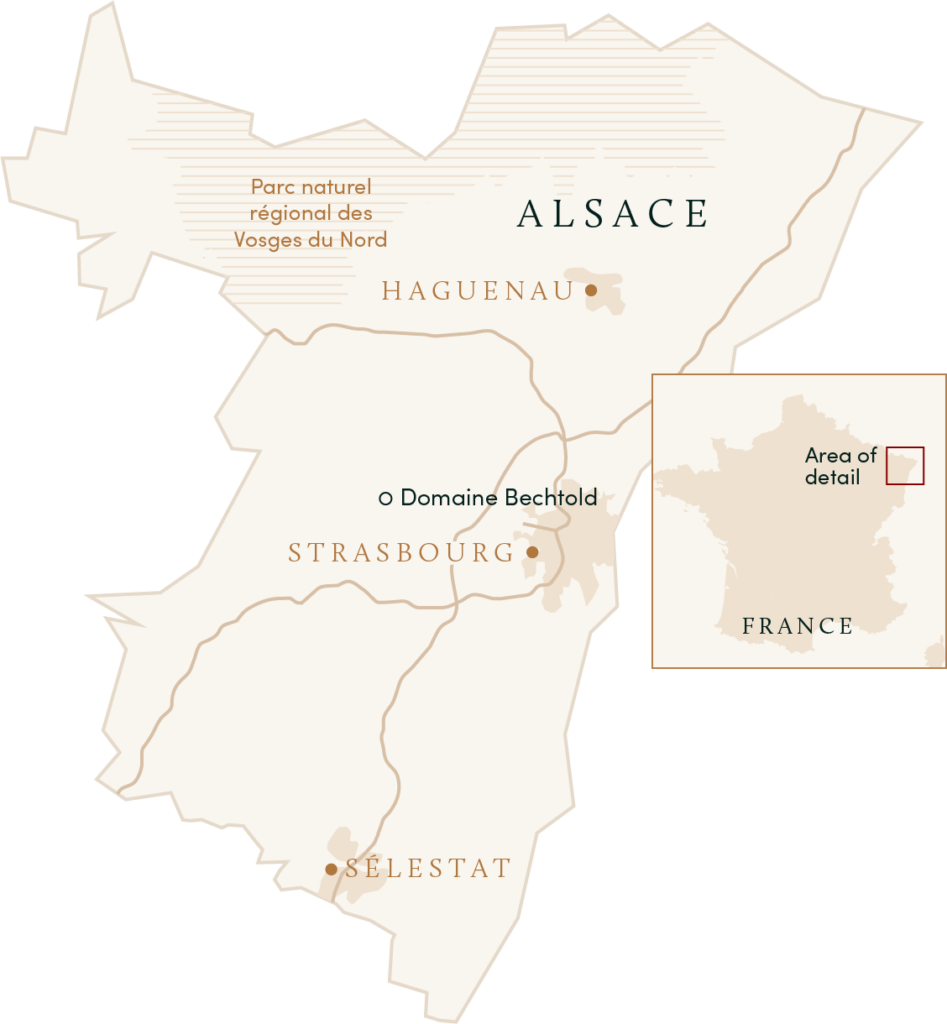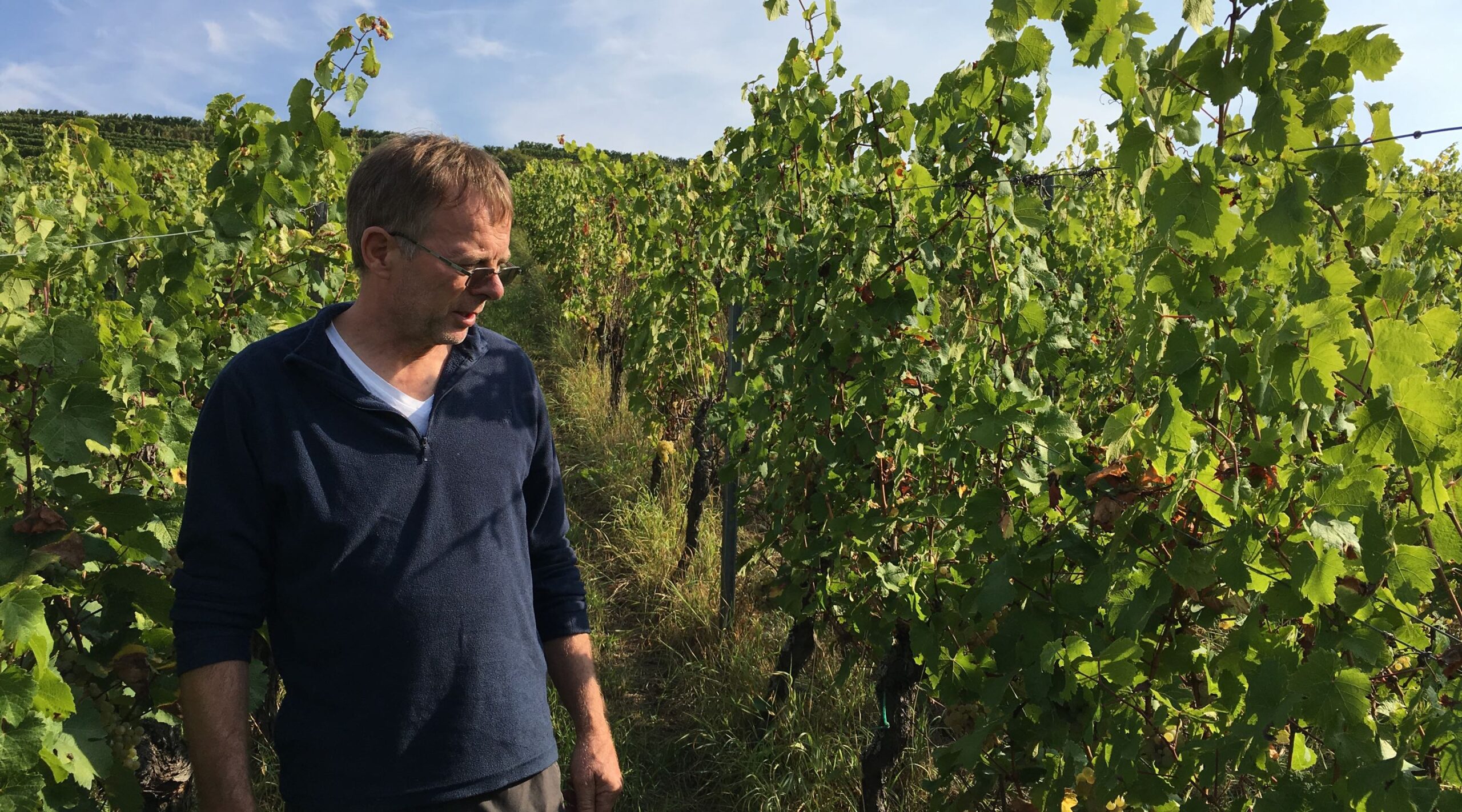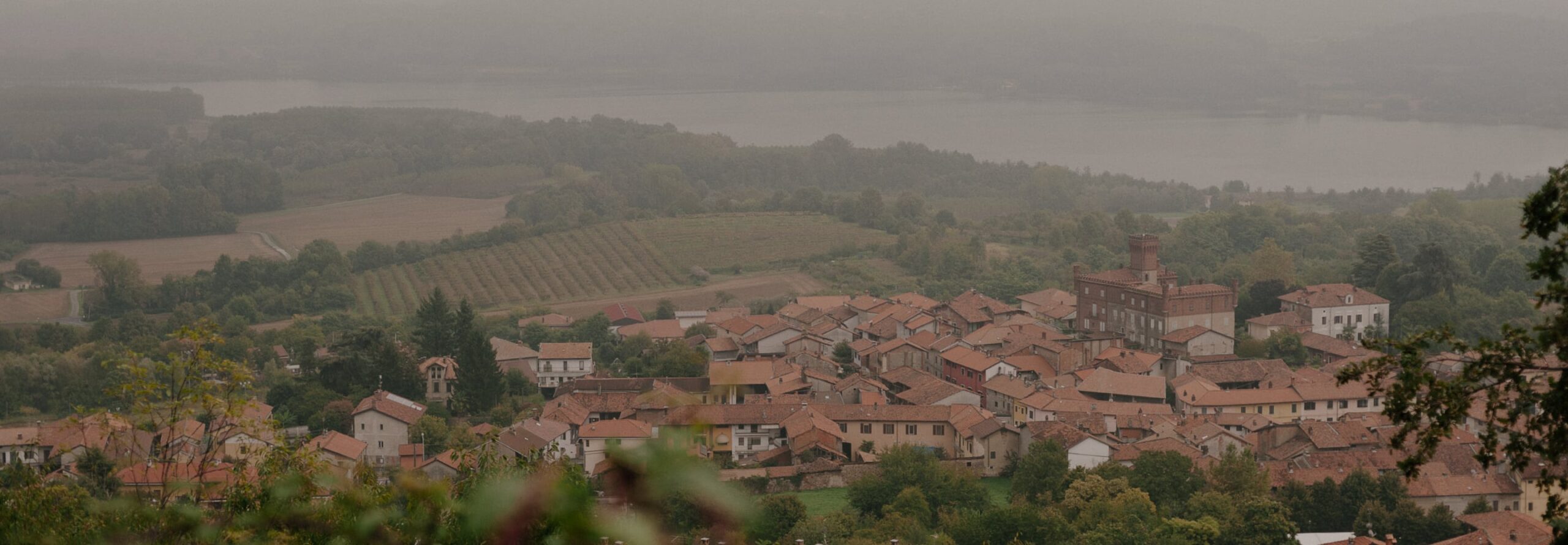Jean-Marie Bechtold is the fourth generation to steward this traditional domaine. He began working with his father in 1980 and took the reins in 1995. The estate is located in Dahlenheim, west of Strasbourg in the slopes of the “Couronne d’Or”, a region with 2000 years of viticultural history.
Among its 12 hectares of vineyards, the domaine has impressive holdings in the Grand Cru “Engelberg” site, complemented by parcels in three other vineyards: “Sussenberg”, “Obere Hund” and “Silberberg”. The most important vineyard of the village is the Grand Cru “Engelberg”, a hill rich in limestone that is famed for producing wines of elegance and structure. It has long been revered in the region and there is a mention of the Engelberg site in the main cathedral in Strasbourg, a reference dating to 890 A.D. Domaine Bechtold is the only organic grower in Dahlenheim and Jean-Marie Bechtold is currently making the conversion to biodynamic viticulture.
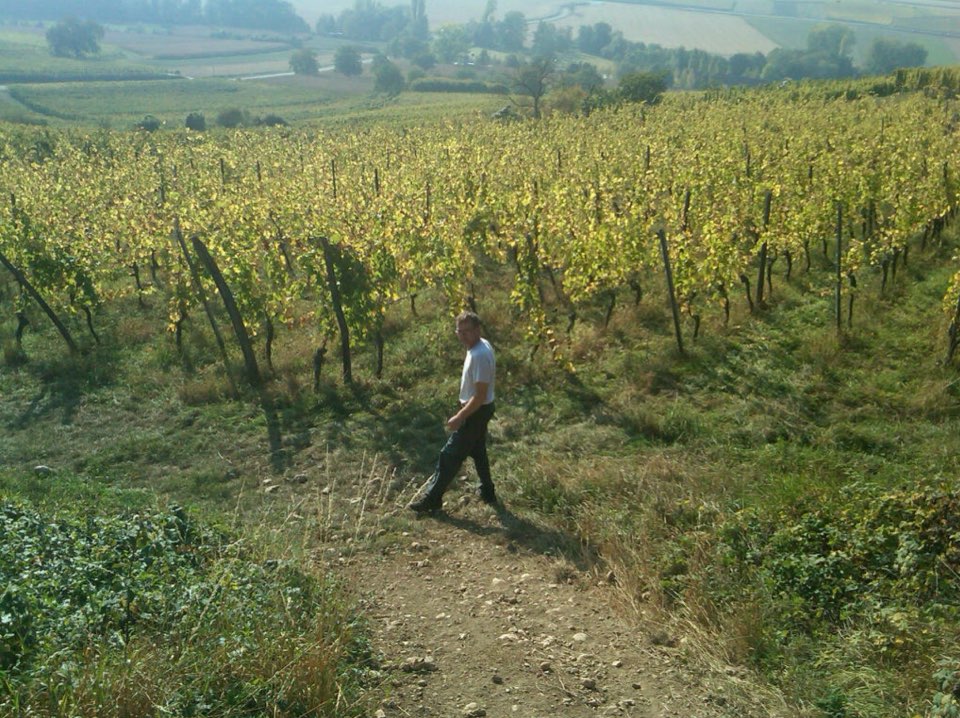
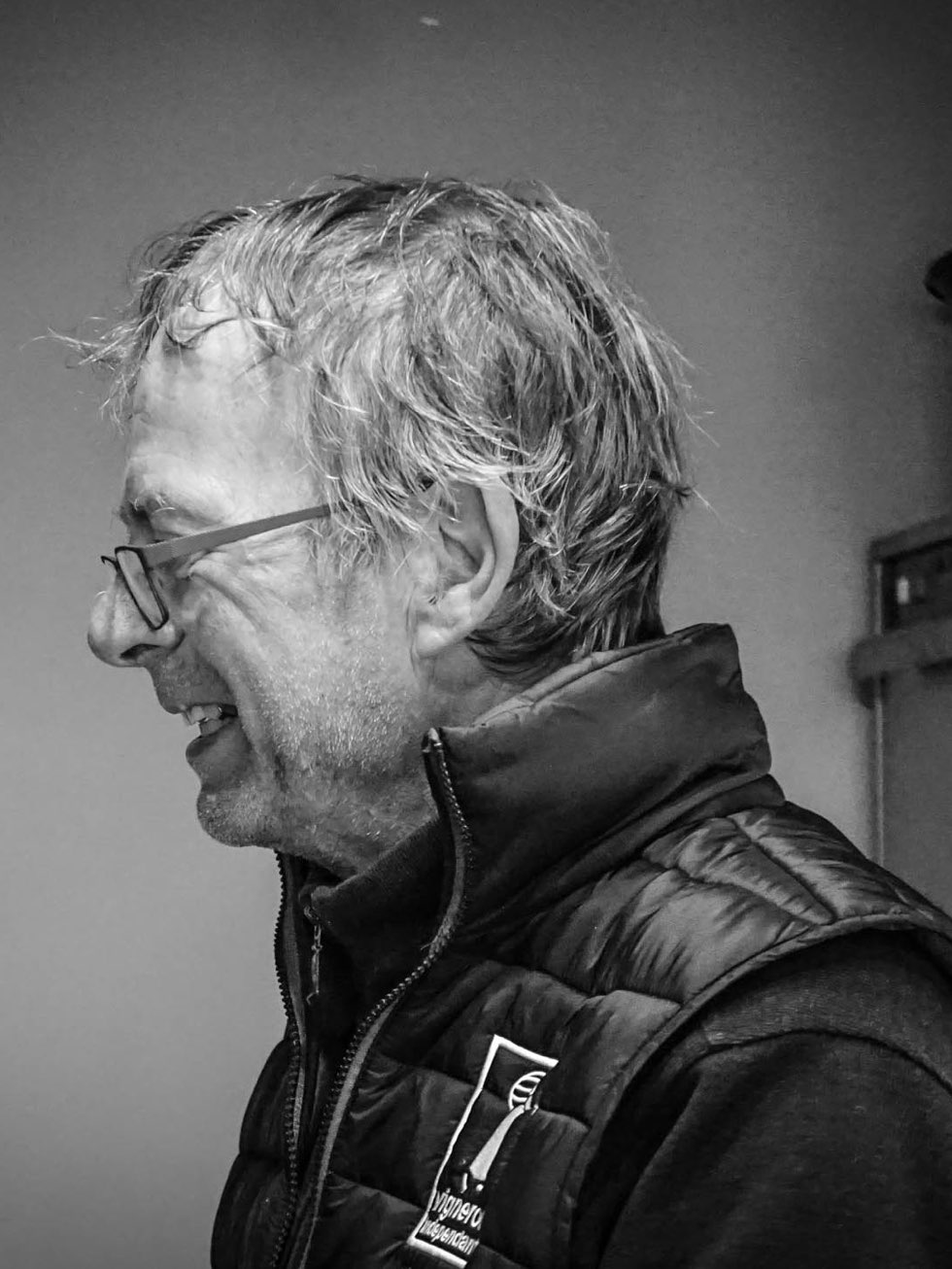
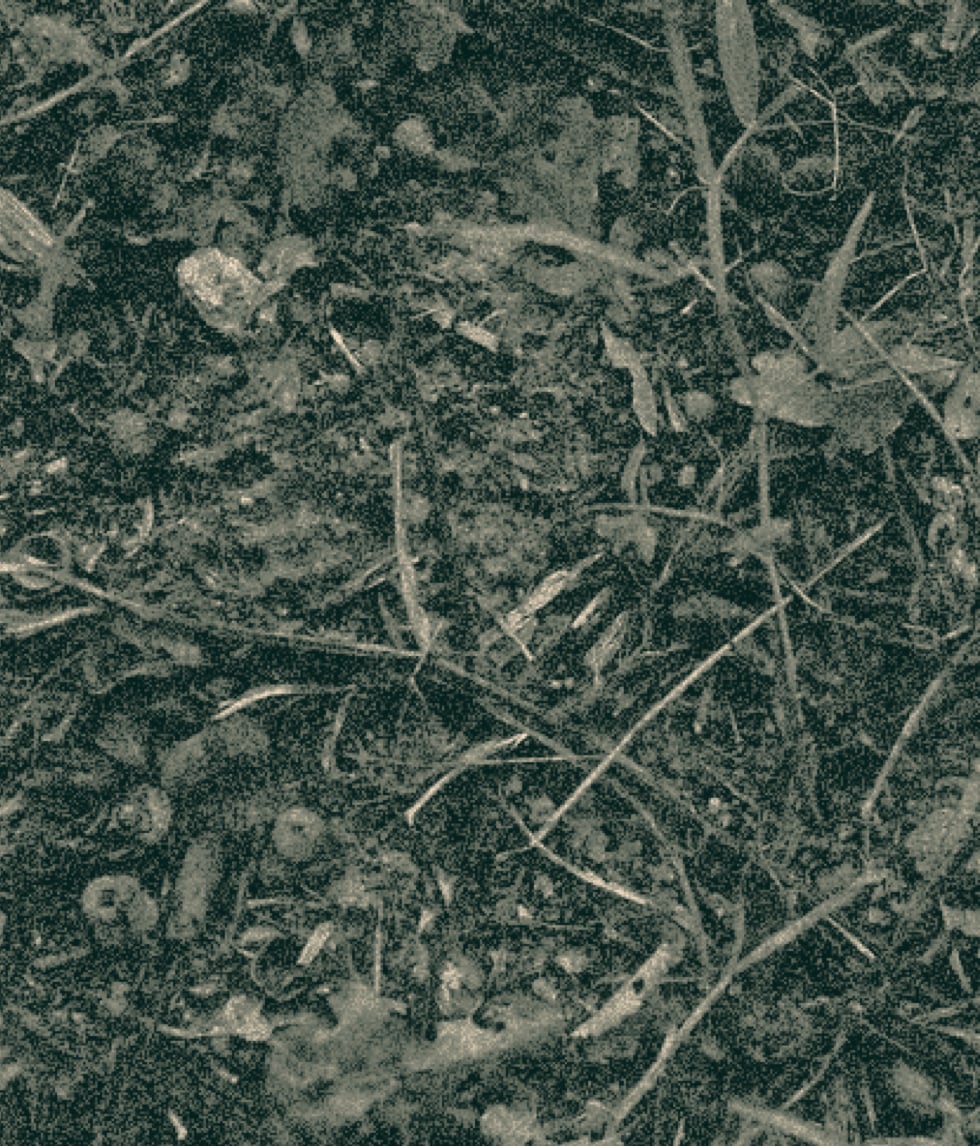
The most important vineyard of the village is the Grand Cru “Engelberg”, a hill rich in limestone that is famed for producing wines of elegance and structure.
Jean-Marie believes vinification and elevage must be approached as a parent raises a child: with patience, spirited attention and understanding of particular needs. He minimizes intervention during the vinification to allow the wines to express their own character and to remain faithful to the vintage. Virtually all fermentation is done in stainless steel tanks with the objective of capturing the fresh acidity and typical dry style of the region. The style is light, pure and elegant. The wines have a silky structure without being soft and they are complex without being overwhelming; they offer classic examples of the flavor and structure that defines this special terroir … cool, refined, dignified.
Farming
Certified biodynamic by Demeter since 2016, certified organic by ecocert since 2010, practicing organic since 1996.
Treatments
Traditional medicinal plants (horsetail, nettle, comfrey, meadowsweet) reduce reliance on copper-sulfate considerably, which is only used as a last resort.
Ploughing
Yearly mechanical ploughing to foster healthy soils
Soils
A diverse array of soils, as is typical in Alsace, but all in a lattice of limestone marls on steep south/southeast-facing slopes.
Vines
Between 20-40 years old, all in double guyot at c. 5,500 vines/ha
Yields
No green harvesting, as the domaine relies on debudding to curb excess production
Harvest
Exclusively manual (one of the few in the Bas-Rhin). Harvest ranges from August-September.
PURCHASING
Always entirely estate fruit
Fermentation
All wines ferment spontaneously for c. 3 weeks in temperature-controlled, stainless-steel tanks.
Extraction
Pinot Gris Nature and Pinot Gris Engelberg Comme Un Rouge macerate on their skins for c. 1 week.
Chaptalization
No chaptalization in recent years with the dramatic effects of climate change. No acidification.
Pressing
Pneumatic. Whole-cluster, direct pressing for whites
PRESS WINE
Ferments with free-run juice for whites, blended after fermentation for reds, and is c. 10-15% of the final blend.
Malolactic Fermentation
Most wines go through spontaneous malolactic fermentation.
Élevage
Gewurztraminer spends at least 8 months in stainless-steel tank, Riesling spends at least 12 months. Pinot Gris and Pinot Noir age in neutral barriques aquired from RWM grower Régis Forey in Nuits-Saint-Georges.
LEeS
All wines rest on their fine lees during élevage.
FINING & FILTRATION
Most wines are unfined and undergo plate filtration. The Pinot Gris Comme un Rouge, Pinot Gris Nature, Pinot Noir Obere Hund, and Pinot Noir Steinklotz are unfiltered and unfined.
SULFUR
Small dose of sulfur prior to fermentation to guard against volatile acidity and a small dose at bottling. < 80 mg/l total, c. 10 mg/ l free. Pinot Noir Steinklotz, Obere Hund, and Pinot Gris Nature see no added sulfur, and total c. 20 mg/l.
